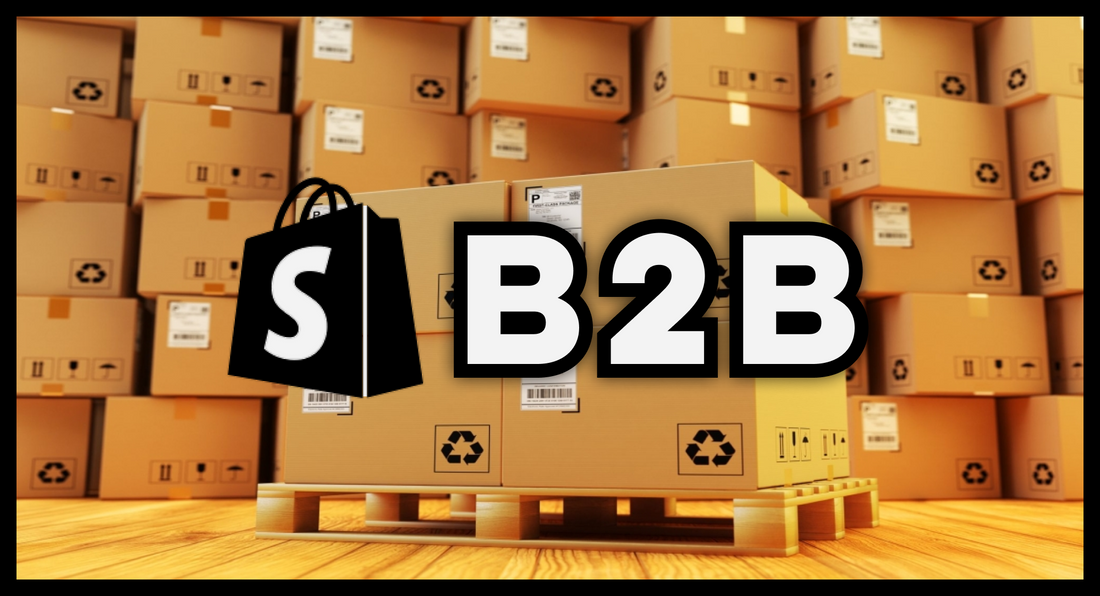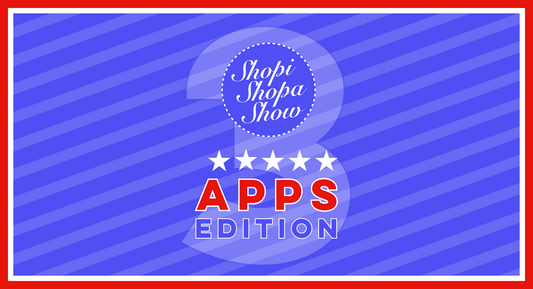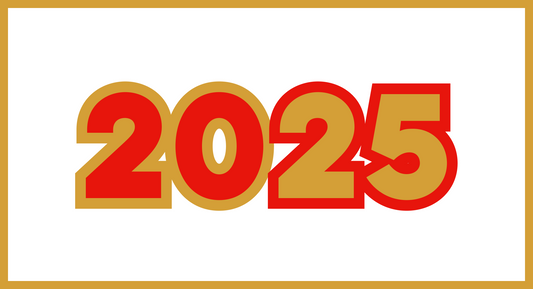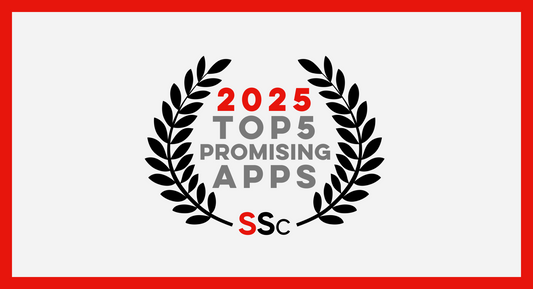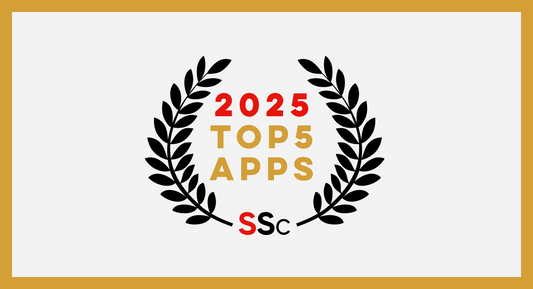Online sales are not only for individuals, and wholesale eCommerce has experienced an extremely strong growth in recent years. As a sign of the times, many players, brands and distributors, are now turning to B2B eCommerce to strengthen their online offering and continue to grow their sales.
At Shopify, you can notably read what Bobby Morrison, Chief Revenue Officer, has to say on the enormous opportunity that B2B will represent in 2024.
But let's be clear! Outdated and counter-intuitive "wholesale" platforms are done... Today's professional buyers are also online buyers in their personal lives, and they want the same UX and design when purchasing for their work.
In this article, let's have a look to the B2B features that are (exclusively) available on Shopify Plus. Knowing that everything always goes very fast at Shopify, and that the coming months will of course provide a lot of new B2B improvements...
Several years in the making...
Shopify has launched its first B2B offer, the Wholesale Channel, in Spring 2017, implementing on Shopify Plus some features allowing corporate purchases. It was built as a sales channel, not directly into the native functionalities of the platform.
Even if this offer has powered a certain number of B2B sites, the Wholesale Channel had a lack of flexibility (especially on the front) and not enough integration with Shopify Plus. Its popularity therefore remained limited, and few agencies or consultants learned how to deploy it, opting to wait for a more significant update of the platform
And it is much more than an update that Shopify introduced on June 22nd, 2022: a whole new technical and UX approach to B2B, with features fully integrated into Shopify Plus menus.
The Wholesale Channel has been set aside, and its official end of life is scheduled for April 30th, 2024. Good to know: Shopify has built a training content specifically dedicated to migrating from the Wholesale Channel to B2B functionalities, an extremely comprehensive content with even a little quiz at the end.
And for 18 months now, Shopify has continuously strengthened its new B2B offering, covering a growing number of business cases. In fact, there are more and more B2B projects on Shopify Plus, and this is only the beginning!
Blended or dedicated B2B store?
One of the first questions when working on a B2B project on Shopify Plus is to decide whether the B2B business will be configured on the same back-office than the B2C business (we will then speak of a blended store), or if B2B will be isolated into a specific back-office (we will speak of a dedicated store).
Among the topics that can lead to a dedicated store for the B2B business, here are the main ones:
- Manage different inventory levels for B2C and B2B sales,
- Manage different delivery methods and costs between B2C and B2B,
- Personalize the B2C payment tunnel differently from the B2B tunnel,
- Adopt two distinct designs for B2C and B2B stores,
- Adapt communication content (notifications) to B2C or B2B customers,
- Separately manage interfaces with the company's IT systems.
For merchants located in the European Union, another parameter has to be evaluated, knowing it's perhaps the most important: in case of a blended store, all products will necessarily be displayed with tax-included prices, even for B2B customers. To date, there is no possibility to set up tax-excluded product prices on only a part of a Shopify store. It's all or nothing. So building a B2B store in a specific back-office is a no-brainer inside the European Union.
Regarding the B2B account that customers can access online, this is necessarily the new customer account version, that appeared on Shopify at the end of 2022, and whose customization is not yet possible (it has just been opened to agencies in Developer Preview mode). In case of a blended store, merchants can choose to use the new customer account for the B2C and B2B customers, or to keep the classic customer account for B2C customers.
Companies customers
Shopify Plus merchants have access to a Companies option in the Customers menu.
This functionality allows to record B2B customers informations, including some specific settings:
- Collect the company administrative and tax information,
- Create one or more locations for the company, with different addresses,
- Link collaborators and commercial conditions to each location,
- Define payment terms granted to the company.
Important: as soon as an individual customer account is linked to a company location, it becomes a B2B account. In the case of a blended store, this account will no longer be able to place orders as an individual. The person who owns this account will necessarily have to create another account with another email to purchase on the B2C store.
Personalized price lists
Another option exclusive to Shopify Plus, Catalogs are accessible from the Products menu.
This functionality allows to set up specific price lists, and especially:
- Define the list of products that can be purchased,
- Apply discounts on certain products, in percentage or with an amount,
- Apply volume pricing on certain products,
- Apply quantity rules on certain products.
Once created, a catalog can be linked to one or more locations (from the same company or from different companies). Collaborators attached to these locations will see the corresponding personalized prices as soon as they log in to the store. And if a collaborator is attached to several locations with different price lists conditions, he or she will be able to select the proper location before placing an order.
Sales staffs
This feature allows sales teams to complete and validate orders from B2B customers assigned to them.
Available in the users management menu of the Shopify Plus back office, this option is used to assign sales staffs to companies they are in charge of, and restrict their access to orders and drafts orders linked to their B2B customers only.
This feature is currently in early access, and not yet available on all Shopify Plus.
Draft orders
Draft orders are available to all Shopify merchants, not just those on Shopify Plus. But they are particularly useful for some B2B sales processes.
For instance, a company can be set up so that their collaborators can not directly finalize their orders in the checkout, leaving the possibility for a sales staff to modify the order (of course after discussing it with the company) before definitely validate it.
It is also possible for a sales staff to directly create a new draft order for a B2B customer, send the payment information to him, then validate the order once paid and fulfill it.
Customizable UX and design
In the case of a dedicated store, the design can obviously be totally specific to the B2B business, and distinct from a possible B2C store, each back office being able to use a different theme.
In the case of a blended store, the Shopify theme editor displays (since summer 2023) a selector allowing merchants to choose the store version they want to customize: used to manage different Markets versions of the store, this selector also provides a B2B option so that the B2B store design can be separately modified.
The merchant can take advantage of the power and flexibility of the Shopify theme sections and blocks to create an impactful B2B store.
Note that a new theme section type allows to display the variants of a product in a list one below the other, makig it easier and quicker to purchase different references.
Personalized checkout
The Shopify Plus B2B checkout is different from the Shopify Plus B2C checkout, but is compatible with the new Checkout Extensibility technology.
Therefore, it's possible to implement many customizations in the B2B checkout, in particular byusing Shopify Functions and Checkout UI Extensions.
Other B2B features
B2B on Shopify Plus offers many other settings, including:
- Credit card vaulting to facilitate repeat business (requires Shopify Payments),
- Ability to add a purchase order number to a B2B order,
- Management of potential tax exemptions,
- Implementation of a company account request form (using the Shopify Forms App),
- Ability to use API to update data on companies, locations and B2B catalogs.
Compatibility with other Shopify Plus features
It can be necessary to use B2B functionalities in parallel with some other important settings of Shopify Plus. Here is a quick overview of compatibility statuses:
- Checkout Extensibility: as explained above, the B2B checkout is technically distinct from the B2C checkout, but it also leverages the new Checkout Extensibility technology.
- Shipping options and costs: Shopify's native settings will work for B2C and B2B, but certain specific B2B cases can be configured, for example by using the total weight of an order.
- Languages: B2B features are compatible with Shopify Plus native multi-language settings.
- Markets: the shipping address of a company customer unlock the corresponding market settings in the checkout.
- Currencies: With Shopify Payments, it is possible to sell in the currency of the B2B customer's country.
- Self-serve returns: this functionality, although available in new customer accounts, is not yet activated for B2B orders. As a reminder, management of returns is possible in the back office or via API.
- Shopify POS: it's currently not possible to configure Shopify POS (Shopify retail solution) so that it can manage B2B sales.
B2B features cost
B2B features are included in the Shopify Plus contract, with a special pricing for orders placed through a company account.
Basically, a Shopify Plus contract is billed at 0.25% of revenue, with a monthly minimum of $2,000. But for the part of the revenue generated with B2B orders, the rate is reduced to 0.18%.
B2B features roadmap
Many B2B improvements are expected throughout 2024. It will be particularly useful to have a look at future Shopify Editions, with a new website being released every 6 months and presenting all the new features of the platform, including on B2B.
To discuss B2B functionalities and their various use cases, feel free to contact us.

